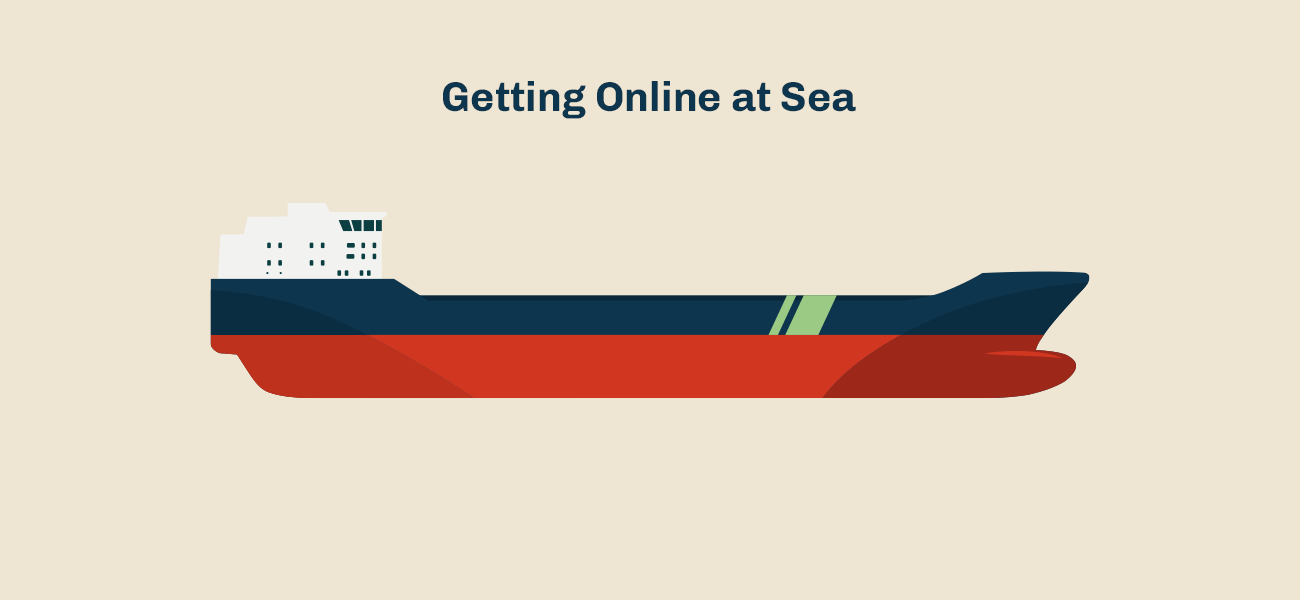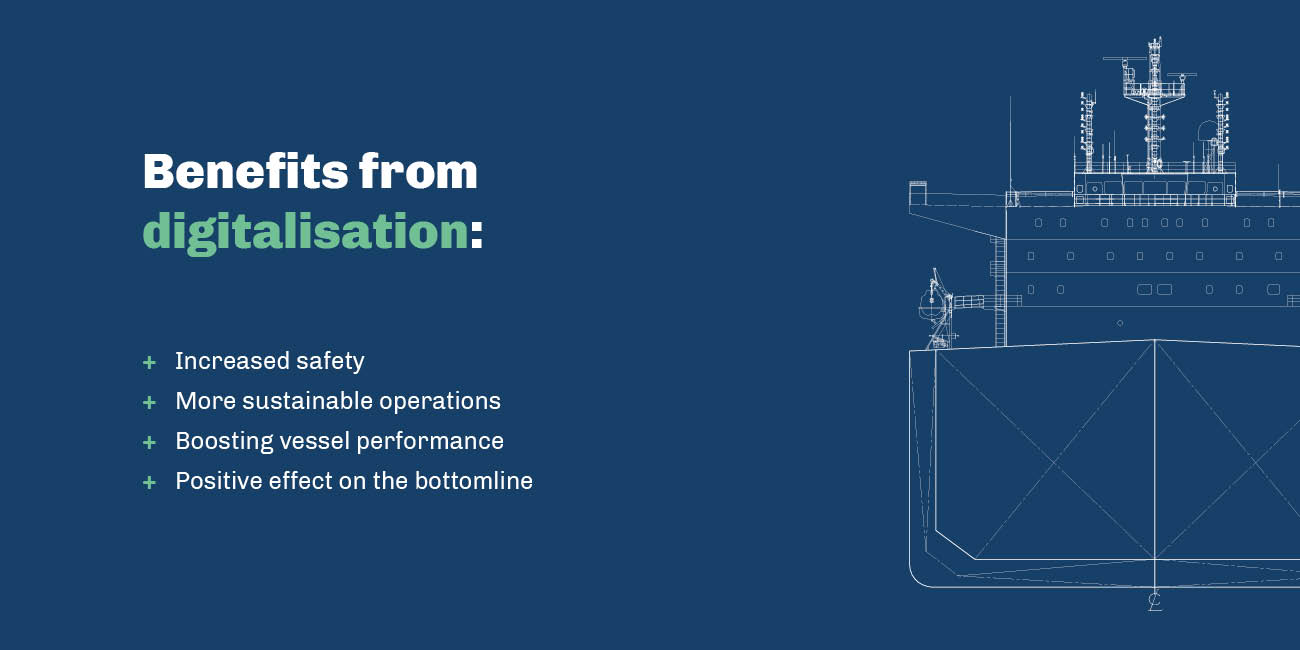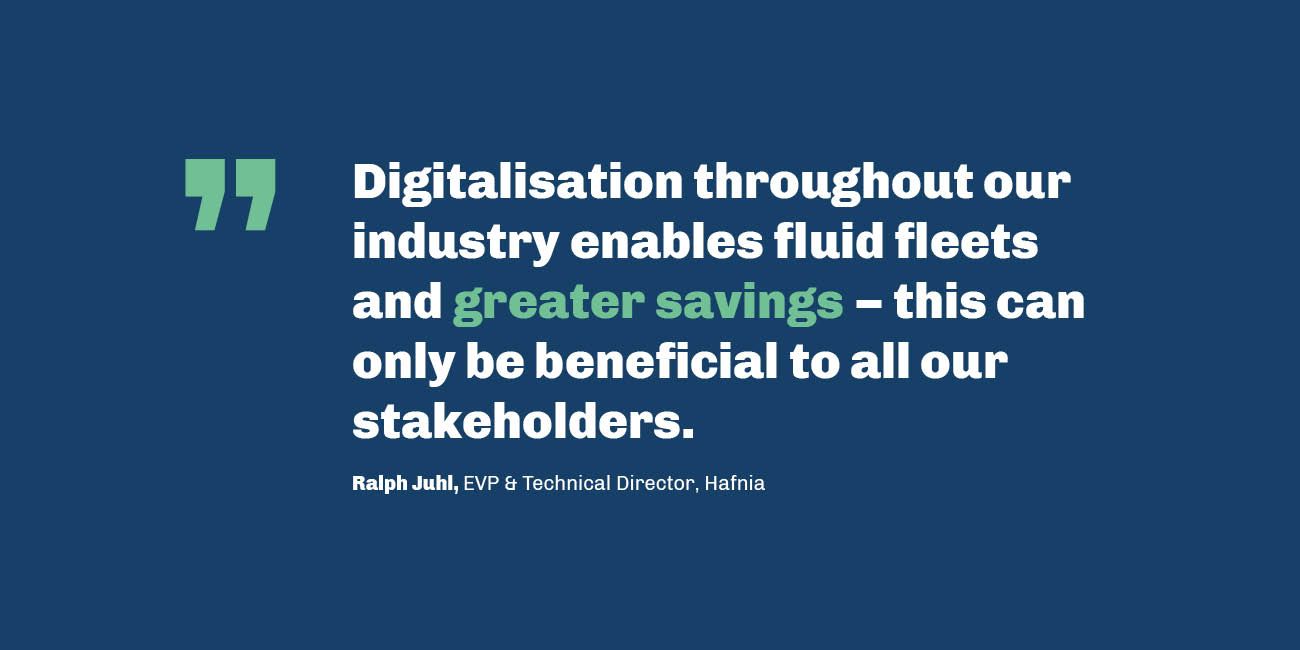As Executive Vice President and Technical Director of Hafnia, Ralph Juhl and his team make sure Hafnia’s fleet can sail and trade 24/7. Whether it’s training crew or harvesting data to enable greater efficiency – digitalisation now plays a vital role in the modern product tanker industry. We dive into how it has driven transformation for Hafnia and the industry at large.
Knowledge is power
With more considerable amounts of data, decision making can be optimised simply by using more information to better inform decisions. The more operational data that can be harvested, the more it can be applied effectively and used to optimise processes and make savings on the bottom line. Ralph points out that safety has been one of the first areas to benefit from Hafnia’s digital journey, through new initiatives such as remote training. Another area that has benefited tremendously from increased digitalisation is Hafnia’s impact on the environment. Through an increased understanding of the vessel, maintenance and operations can be tailored in a way that allows us to operate the vessel more efficiently. One result of this is a reduction in emissions, such as CO2.
“Digitalisation means creating a safer workplace, optimising performance, saving money and utilising the resources we have in a better way.”
Ralph Juhl, EVP & Technical Director, Hafnia

A key digital milestone – getting online at sea
Getting to this point has been a challenge, due to slow internet connections at sea. As recently as five years ago internet connections were virtually non-existent. This meant that there was no digital transfer of information from ship to shore. Getting ships online has seen the digital revolution of the product tanker industry take off. Safety training programs once accessed via CD-ROM are now entirely online. The crew can be trained at sea and assessed by personnel onshore who feed the results fed back to the ship in real-time. Safer ships are a direct result of increased digitalisation.
Greater visibility through increased access to data
Similarly, data from equipment onboard product tankers is being used more openly to optimise maintenance and predict system failures before they happen. With a constant assessment of pressure, temperature and other parameters, overall equipment and vessel performance can be vastly improved. And access to the data is starting to become democratised. For a long time, engine manufacturers were the only ones with access to data from engine sensors. This information was then sold back to the shipowners at a price. Digitalisation has seen the ship owners empowered to harvest this data themselves. The upshot is that, if done effectively, ship owners can further optimise technical operations through understanding how their heavy machinery is functioning.

Creating an intelligent fleet
Digitalisation has catalysed a step-change in the industry, opening it up and disrupting traditional practices and business relations. Hafnia now has a digital initiative known as SmartShip, which has seen the installation of up to 5,000 sensors per vessel feeding back a full data collection set to Hafnia’s offices. This enables shore users to visualise the ship’s operational parameters and performance data such as vessel speed, fuel consumption, and other essential voyage information in real-time. In the long run, the ambition is that these SmartShips will be able to independently determine and execute the optimal performance conditions, much like autopilot on an airplane.
Getting onboard for the digital journey
Of course, substantial change comes with scepticism and apprehension. Automation of processes can often be a cause of insecurity among people. But the benefits are evident; ships are safer, assistance with problems onboard can be offered, preventative maintenance carried out and savings made. As we’ve seen in other domains, machines are still a long way away from replacing human decision making – especially in complex and uncertain tasks like shipping. For optimal results, people and technology must collaborate hand in hand.

The journey continues
From centralised data collection and real-time optimisation to ascertaining pool performance of individual ships and carrying out preventative maintenance – digitalisation is taking the product tanker industry to a new level of efficiency. Hafnia is even able to understand how the company will move forward to meet strict CO2 regulations coming into force as far away as 2030. It’s clear that going digital is facilitating benefits for crews, management, oil majors and shareholders alike.
“Digitalisation throughout our industry enables fluid fleets and greater savings – this can only be beneficial to all our stakeholders.”
Ralph Juhl, EVP & Technical Director, Hafnia
Stay tuned for our upcoming article on what’s next for digitalisation in the product tanker industry; are autonomous ships really in store for the future or are they merely a figment of the imagination?
Share on social